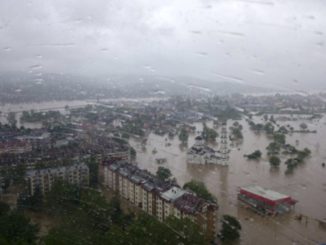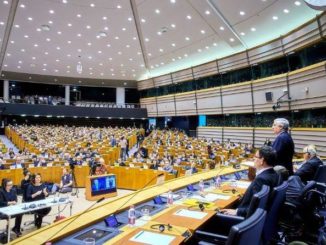
Belgrade – The leader of the Coalition of Refugee Associations Miodrag Linta announced on Tuesday that he will request that UN High Commissioner for Refugees Antonio Guterres reject the Croatian initiative aimed at rescinding the refugee status of Serb expellees, adding that this would be the final act of the ethnic cleansing of Serbs in Croatia.
The expelled Serbs from Croatia who are represented by refugee associations believe that this is the wrong approach, as there are 41,000 people in Serbia with refugee status, Linta said in a statement of the Coalition submitted to Tanjug.
Also, there are more than 250,000 people in Serbia who have lost the refugee status after obtaining Serbian citizenship – in that way, they also lost the opportunity for sustainable return, but have not been able to exercise their property and status rights or other established rights, Linta warned.
The letter that the Coalition intends to send to Guterres will be shown to the Serbian leadership, the EU, the OSCE, the Council of Europe and ambassadors of the UNHCR Executive Committee member countries, Linta said.
He warned that Croatia has failed to fulfil its obligations from international and bilateral agreements, in particular, the Vienna Agreement on Succession Issues from 2001, which protects refugee rights, or the conclusions of the Sarajevo Declaration from 2005, by refusing to solve the issue of rescinded tenancy rights and unpaid pensions.
In addition to all this, Croatia’s commitment to the views expressed in the declaration signed in November 2011 by the foreign ministers of Croatia, Serbia, Bosnia and Herzegovina and Montenegro at a regional conference in Belgrade has become questionable, he said.
Rescinding the refugee status would also put in doubt the regional housing programme coordinated by the four countries to provide housing for 72,000 of the most underprivileged refugees over the next five years, Linta said.
Linta pointed out that Croatia has failed to meet its obligation to restore the fundamental human rights of its ethnic Serbs, which it had undertaken in its EU entry talks by accepting the obligations from Chapter 23 on the judiciary and human rights.
“For this reason we call on the UNHCR to continue the humanitarian work and help the refugees to achieve lasting solutions, as well as support our request against a rescission of the refugee status of expelled Serbs living in Serbia, because it would make it far more difficult for them to exercise their fundamental rights, including the right to sustainable return,” Linta said.
Should the UNHCR accept Croatia’s initiative aimed at rescinding the expellees’ refugee status, it will take upon itself the responsibility for any consequences to the refugees themselves or to the implementation of the regional housing programme, whose objective is to eliminate the consequences of the war and achieve lasting peace and reconciliation in the region, the Association said. (TANJUG)



